Instagram Mental Health Lawsuits
- Last Updated: July 15th, 2025

Attorney Jessica Paluch-Hoerman, founder of TruLaw, has over 28 years of experience as a personal injury and mass tort attorney, and previously worked as an international tax attorney at Deloitte. Jessie collaborates with attorneys nationwide — enabling her to share reliable, up-to-date legal information with our readers.
Legally Reviewed
This article has been written and reviewed for legal accuracy and clarity by the team of writers and legal experts at TruLaw and is as accurate as possible. This content should not be taken as legal advice from an attorney. If you would like to learn more about our owner and experienced injury lawyer, Jessie Paluch, you can do so here.
Fact-Checked
TruLaw does everything possible to make sure the information in this article is up to date and accurate. If you need specific legal advice about your case, contact us by using the chat on the bottom of this page. This article should not be taken as advice from an attorney.
Key takeaways:
- Individuals under 25 who used Instagram for at least 2 hours daily and developed diagnosed mental health conditions like depression, anxiety, eating disorders, or engaged in self-harm may qualify to file a lawsuit against Meta as part of MDL 3047, which now includes 1,867 pending cases.
- Parents can file on behalf of minor children who suffered Instagram-related mental health injuries, while families who lost loved ones to suicide linked to Instagram use may pursue wrongful death claims potentially worth $1.5-5 million in damages.
- Adults over 21 can still file Instagram mental health lawsuits if their addiction and resulting psychological issues began before age 21, with 42 states joining the coordinated legal action and bellwether trials scheduled for 2026.
Who Qualifies to File Instagram Mental Health Lawsuits?
Question: Who qualifies to file Instagram mental health lawsuits?
Answer: Individuals who developed diagnosed mental health conditions including depression, anxiety disorders, eating disorders, body dysmorphia, or engaged in self-harm behaviors after regular Instagram use may qualify to file a lawsuit against Meta.
The strongest cases involve teenagers and young adults under 25 who used Instagram for at least two hours daily and subsequently required mental health treatment, hospitalization for eating disorders, or attempted suicide.
On this page, we’ll discuss this question in further depth, major defendants in Instagram mental health litigation, specific qualifying criteria, and much more.
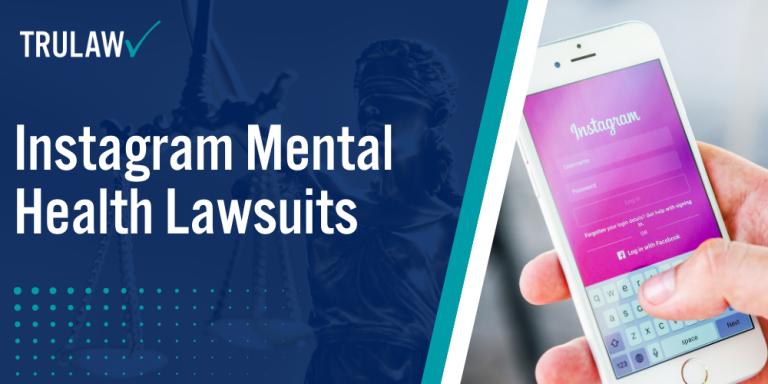
Age and Usage Requirements for Instagram Lawsuit Claims
Young users who began using Instagram before age 18 and developed mental health conditions during or after heavy platform use have particularly strong claims due to adolescent brain vulnerability.
Parents can file on behalf of minor children who suffered Instagram-related mental health injuries, while families who lost loved ones to suicide linked to Instagram use may pursue wrongful death claims.
Cases involving eating disorders like anorexia or bulimia that developed after exposure to Instagram’s appearance-focused content and “thinspiration” posts meet qualification criteria with medical documentation.
Documentation requirements include proof of Instagram usage patterns, mental health diagnoses from qualified healthcare providers, and evidence connecting platform use to psychological harm such as therapy records discussing social media’s role in the condition.
If you or someone you love developed an eating disorder or depression from Instagram use, you may be eligible to seek compensation.
Contact TruLaw using the chat on this page to receive an instant case evaluation that can help you determine if you qualify to file an Instagram Mental Health Lawsuit today.
Table of Contents
Instagram Mental Health Lawsuit Overview (MDL 3047)
The consolidation of over 1,867 cases into multi-district litigation MDL 3047 represents one of the largest coordinated legal actions against social media companies in U.S. history, though similar cases against other social media companies continue to emerge nationwide.
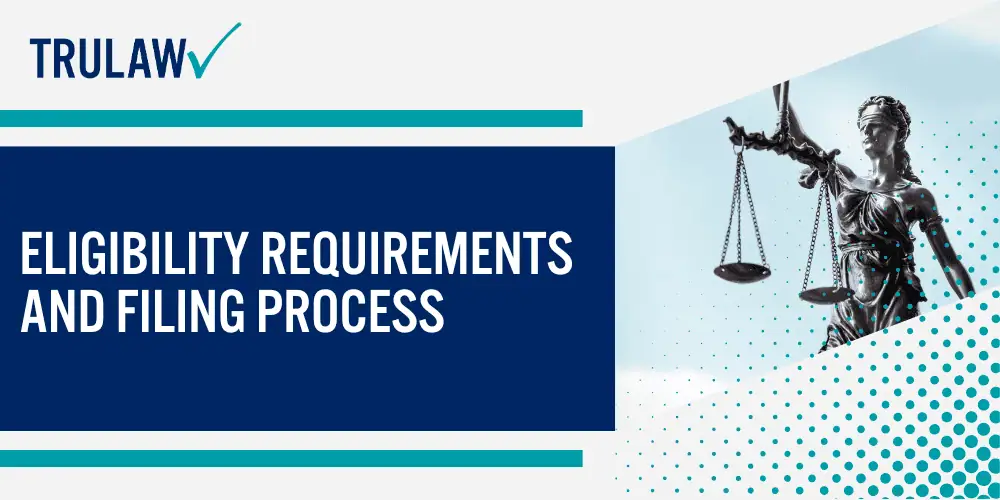
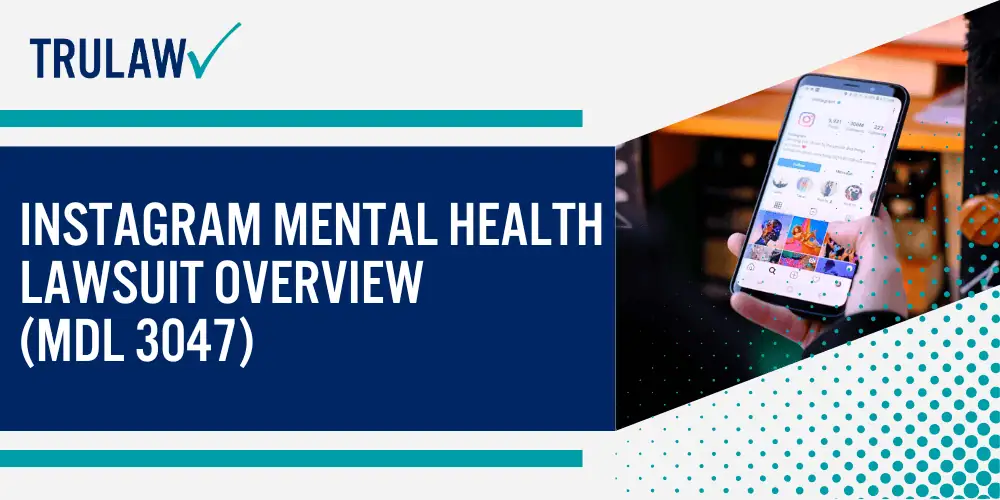
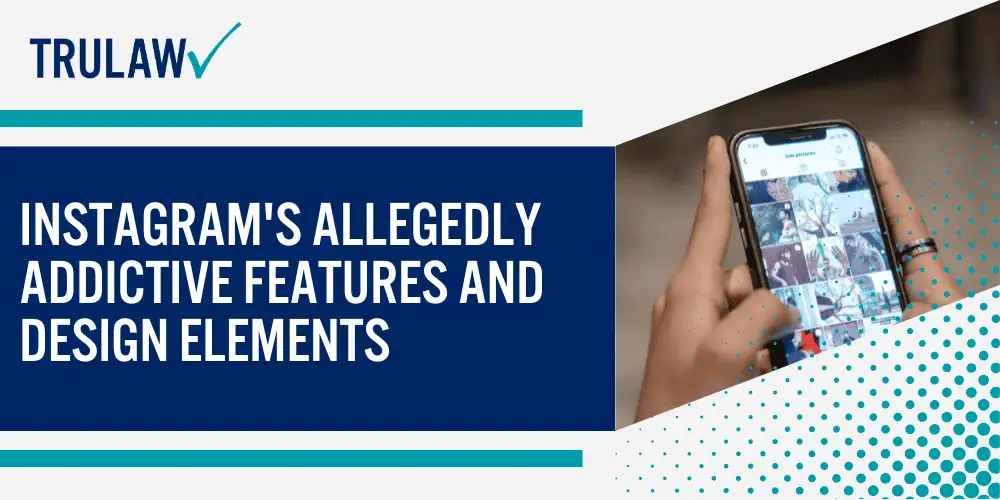
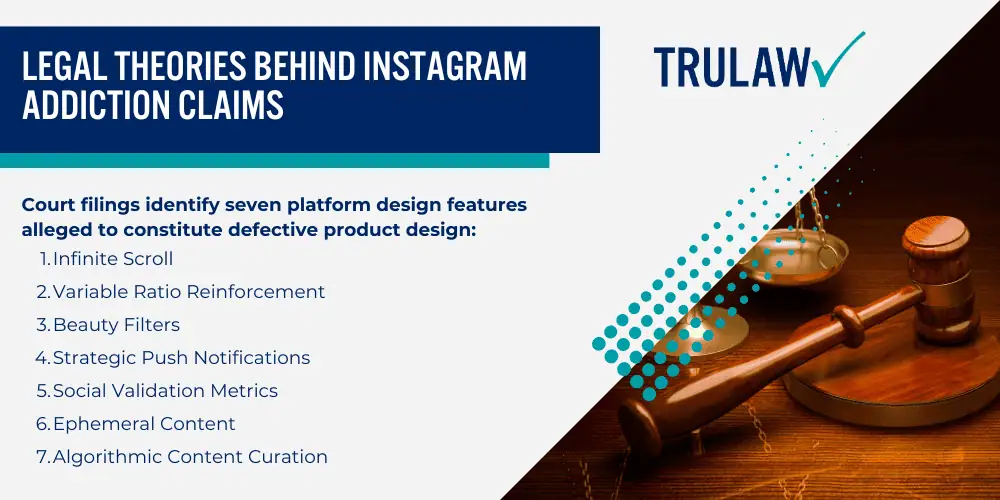
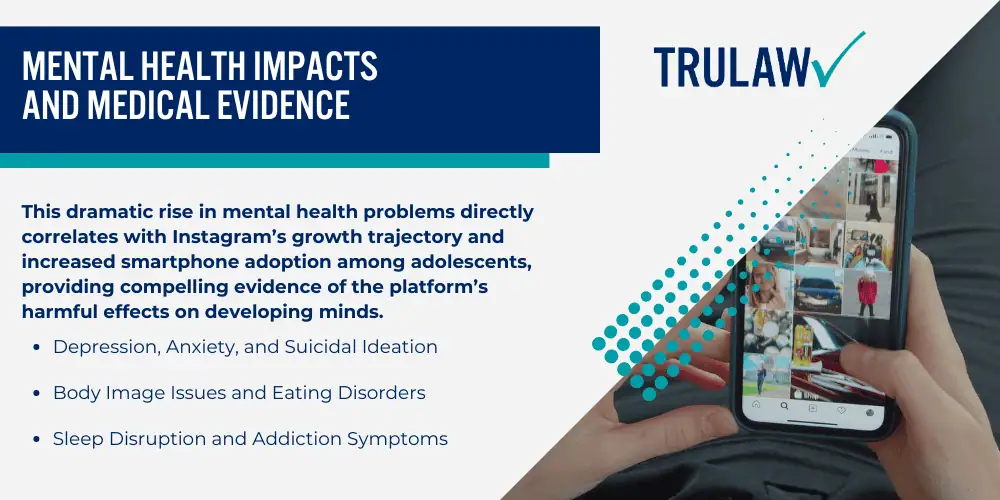
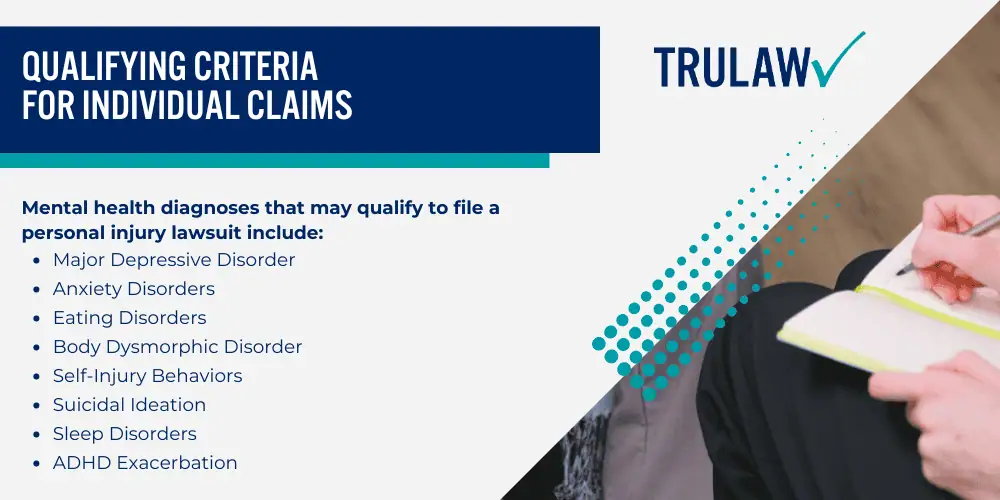
The litigation has advanced significantly with bellwether trial selection complete, though trials initially scheduled for October 2025 have been postponed until 2026 following pretrial schedule modifications.
The Evolution of Social Media Addiction Litigation
Frances Haugen’s explosive October 2021 whistleblower testimony before Congress marked a turning point in public awareness of Instagram’s internal knowledge about platform harms.
The former Facebook data analyst revealed internal documents showing the company knew Instagram was toxic for teen girls, with 30% reporting the platform made body image issues worse.
This revelation catalyzed the formation of MDL 3047 in October 2022, when the Judicial Panel on Multidistrict Litigation consolidated the growing number of social media lawsuits filed as a class action lawsuit seeking accountability.
MDL 3047 has achieved the following milestones over its 33-month history:
- October 2022: Initial MDL consolidation begins with just 8 cases, marking the formal start of coordinated federal lawsuit proceedings
- November 2022: Court appoints Plaintiffs’ Steering Committee to lead consolidated cases and coordinate legal strategy
- October 2023: 41 state attorneys general file coordinated lawsuits, significantly expanding the scope of legal challenges
- November 2023: First major victory as court partially denies Meta’s motion to dismiss, allowing key claims to move forward
- October 2024: Judge Rogers delivers another win for plaintiffs by allowing failure to warn claims to proceed
- February 2025: Wrongful death claims survive dismissal motions, opening the door for families seeking justice
- June 2025: Court selects bellwether cases from both school districts and individual plaintiffs for initial trials
- July 2025: Social media MDL expands to 1,867 pending actions, demonstrating the litigation’s massive scale
This litigation parallels historic mass tort cases against tobacco and opioid companies, where internal documents revealed corporate knowledge of product dangers while publicly denying harm.
Legal experts note similar patterns of targeting vulnerable populations, suppressing negative research, and prioritizing profits over public health warnings.
Legal Theories Behind Instagram Addiction Claims
The four primary legal theories driving this litigation challenge Meta’s corporate conduct and platform design from multiple angles.
Strict liability for design defect claims argue Instagram’s features are inherently dangerous and unreasonably harmful to adolescent users.
Failure to warn allegations center on Meta’s knowledge of mental health risks without adequate disclosure to users and parents.
Negligent design and oversight claims focus on the company’s duty of care to minor users and young people who are particularly vulnerable to platform manipulation.
Consumer protection claims address deceptive marketing practices targeting youth.

Court filings identify seven platform design features alleged to constitute defective product design:
- Infinite Scroll: Endless content streams that automatically load without user action, eliminating natural stopping points
- Variable Ratio Reinforcement: Randomized delivery of likes and engaging content mimicking slot machine mechanics to trigger compulsive checking
- Beauty Filters: Face-altering technology that promotes unrealistic appearance standards, contributing to body dysmorphia in teens
- Strategic Push Notifications: Alerts timed to exploit moments of vulnerability, using machine learning to maximize re-engagement
- Social Validation Metrics: Public display of likes, followers, and engagement statistics that turn peer interaction into competitive scoring
- Ephemeral Content: Disappearing stories that create artificial urgency and trigger fear of missing out (FOMO)
- Algorithmic Content Curation: Recommendation systems that push increasingly extreme content to maximize engagement, often leading vulnerable users to harmful material
Judge Rogers’ October 2024 ruling dealt a significant blow to Meta’s Section 230 defense strategy, finding that design defect claims aren’t barred by platform immunity protections.
The District Court distinguished between third-party content (protected) and Meta’s own product features and algorithms (not protected), establishing precedent for holding social media companies accountable for platform architecture choices.
If you or a loved one experienced severe mental health issues including depression, anxiety, eating disorders, or suicidal ideation related to Instagram use as a minor, you may be eligible to seek compensation.
Contact TruLaw using the chat on this page to receive an instant case evaluation that can help you determine if you qualify to file an Instagram Mental Health Lawsuit today.
Mental Health Impacts and Medical Evidence
Peer-reviewed research and CDC data paint a devastating picture of Instagram’s role in the youth mental health crisis that has exploded since the platform’s 2010 launch, documenting the negative impacts on young users’ mental health across multiple dimensions.
CDC surveillance shows that rates of teen mental health issues increased by over 50% between 2010 and 2020, with nearly 1 in 3 high school girls seriously considering suicide—a 60% increase from a decade ago.
This dramatic rise in mental health problems directly correlates with Instagram’s growth trajectory and increased smartphone adoption among adolescents, providing compelling evidence of the platform’s harmful effects on developing minds.

Depression, Anxiety, and Suicidal Ideation
Research published in Psychiatric Research and Clinical Practice documents sharp increases in depression, anxiety, self-harm, and suicidal ideation among U.S. adolescents after 2012, with effects disproportionately impacting teenage girls.
Studies comparing Instagram users to non-users found that active platform users experience depression at twice the rate of their peers, with the most engaged users showing the highest rates of mental health disorders.
The mechanism appears to be constant negative social comparison, fear of missing out, and algorithmic exposure to triggering content.
Studies documenting Instagram’s negative mental health impacts include, but are not limited to:
- 2021 Youth Risk Behavior Survey: 40% of high school students report persistent sadness and hopelessness
- CDC Mental Health Surveillance Report: 21% of adolescents experienced anxiety symptoms; 17% experienced depression
- NIH Cyberbullying Research: Cyberbullying linked to increased risk of suicidal thoughts and attempts in young adolescents
- Journal of American Academy of Psychiatry and Law Analysis: CDC data shows 14.9% of adolescents cyberbullied; 13.6% made serious suicide attempts
- Congressional Testimony on Meta Internal Research: Former Meta executives testified before Congress about company’s internal research confirming platform harms
- NIH Psychological Autopsy Study: Multiple documented cases of teen suicides directly linked to social media cyberbullying and harmful content exposure
Court documents cite numerous cases of teenagers who died by suicide after extensive Instagram use, including documented instances where the platform’s algorithms continued recommending harmful content even after users searched for help.
Families report finding Instagram direct messages encouraging self-harm, suicide pacts formed through the platform, and evidence of relentless cyberbullying that pushed vulnerable teens past their breaking point.
Body Image Issues and Eating Disorders
Instagram’s visual nature and beauty filters create a particularly toxic environment for body image, with research from the Tech Transparency Project revealing how the platform’s algorithm actively promotes eating disorder content that damages teens’ low self-esteem and body perception.
Studies show 40% of teens report that Instagram content causes them to worry about their body image, with the platform’s “Explore” page frequently surfacing pro-anorexia and “thinspiration” content to vulnerable users.
Meta’s own research, revealed by whistleblower Frances Haugen to the Wall Street Journal, showed that 32% of teenage girls said Instagram made them feel worse about their bodies—findings that internal Meta research teams documented but executives chose to suppress.
Research published in PLOS Global Public Health found that Instagram use triggers body image concerns and heightens eating disorder pathology, with the platform’s beauty filters linked to a new phenomenon called “Snapchat dysmorphia”—though Instagram’s filters produce similar effects.
Eating disorder treatment centers report that virtually all their adolescent patients cite Instagram as a primary trigger for their illness, with many developing anorexia or bulimia after exposure to platform content.
If your teen developed an eating disorder, body dysmorphia, or engaged in self-harm after using Instagram, you may be entitled to compensation for their suffering and treatment costs.
Contact TruLaw using the chat on this page to receive an instant case evaluation that can help you determine if you qualify to file an Instagram Mental Health Lawsuit today.
Sleep Disruption and Addiction Symptoms
Neurological research shows Instagram triggers the same dopamine pathways and brain’s reward system as gambling and substance abuse, with adolescent brains particularly vulnerable due to underdeveloped prefrontal cortex regions responsible for impulse control.
Sleep studies document that teen Instagram users average 1-2 hours less sleep per night than non-users, with the platform’s blue light exposure and stimulating content disrupting natural circadian rhythms.
Clinical studies show that Instagram addiction shares neurobiological markers with substance use disorders, including altered gray matter volume in regions associated with emotional regulation and impulse control.
Treatment centers specializing in digital addiction report that Instagram is the most difficult platform for teens to quit, with withdrawal symptoms lasting weeks and relapse rates exceeding 70% without professional intervention from behavioral health specialists.
Instagram's Allegedly Addictive Features and Design Elements
Internal Meta documents revealed during discovery show the company’s sophisticated knowledge of adolescent psychology and deliberate exploitation of teen vulnerabilities for profit.
Court filings cite a May 2020 internal presentation titled “Teen Fundamentals” that explicitly discussed how teenage brains’ “relative immaturity” and tendency to be driven by “emotion, the intrigue of novelty and reward” could be leveraged in product development to keep children addicted to platform features.

These revelations demonstrate Instagram’s parent company knowingly engineered Instagram’s features to trigger dopamine responses and create compulsive usage patterns, particularly targeting users under 21 whose prefrontal cortex development makes them especially susceptible to addiction.
Specific Features Under Legal Scrutiny
The “infinite scroll” functionality represents Instagram’s most insidious design choice, eliminating natural stopping points that would allow users to disengage.
Unlike traditional media with clear endpoints, Instagram’s endless feed exploits the brain’s novelty-seeking behavior, with each swipe potentially delivering a dopamine-triggering reward.
Neuroscience experts testifying in the litigation compare this mechanism to slot machines, where variable rewards create the strongest addictive behaviors.
Platform features cited in litigation as purposefully addictive include, but are not limited to:
- Like buttons and hearts: Social validation metrics that trigger reward pathways in developing brains
- Stories: 24-hour expiring content creating fear of missing out (FOMO) and compulsive checking
- Reels: Short-form videos with autoplay designed to hijack attention and distort time perception
- Push notifications: Strategically timed interruptions during vulnerable moments like sleep or study time
- Beauty filters: AI-powered appearance modification promoting unrealistic standards and body dysmorphia
- Direct messaging read receipts: Creating social pressure and anxiety around response times
- Activity status indicators: Showing when users are online to encourage immediate engagement
Expert testimony reveals these features work synergistically to create what addiction specialists studying social media apps call “persuasive design patterns” that override adolescent impulse control.
Internal Meta emails show employees celebrated when teens reported being unable to stop using Instagram despite negative consequences, viewing this as successful “engagement” while other social media platforms continue implementing similar harmful features.
Targeting Youth: Age Verification and Marketing Practices
Meta’s alleged targeting of users under 13 violates the Children’s Online Privacy Protection Act (COPPA), with unsealed court documents revealing the parent company received over 402,000 reports of underage users in 2021 alone but disabled fewer than 164,000 accounts.
Internal communications describe underage users as an “open secret” at the company, with executives acknowledging inadequate age verification while refusing to implement stricter measures that might impact growth metrics.
Marketing strategies specifically designed to attract teen users include:
- Partnerships with teen influencers and celebrities popular with middle school demographics
- Development of “Instagram for Kids” despite knowing platform harms
- Targeted advertising during after-school hours and summer breaks
- Creation of teen-specific features like “Teen Accounts” only after lawsuit pressure
- Use of bright colors, gamification elements, and youth-oriented design language
- Placement of Instagram preinstalled on devices marketed to young users
Court documents reveal Meta generates substantial revenue from its estimated 22 million daily teen users in the United States, with internal projections showing each teen user represents hundreds of dollars in annual advertising revenue.
This financial incentive allegedly drove decisions to maintain weak age verification and ignore lack of parental consent despite knowing children as young as 8 were creating accounts using false birthdates—a practice that proposed legislation would require social media companies to address through stronger verification measures.
If your child developed anxiety, depression, eating disorders, or other mental health conditions from compulsive Instagram use, you may have a valid claim against Meta.
Contact TruLaw using the chat on this page to receive an instant case evaluation and determine whether you qualify to join others in filing an Instagram lawsuit today.
Eligibility Requirements and Filing Process
Eligibility for Instagram mental health lawsuits centers on demonstrating platform-related harm that began before age 21, with most successful claims involving documented mental health diagnoses and evidence of excessive social media use.
Both current minors and adults who suffered Instagram-related injuries as adolescents may pursue claims, provided they can establish causation between platform use and their psychological injuries.

The litigation recognizes that Instagram’s harmful effects often persist into adulthood, allowing those who are now over 21 to seek compensation for ongoing damages rooted in their teenage platform exposure, though questions about Instagram settlement payout date remain pending until bellwether trials conclude.
Qualifying Criteria for Individual Claims
The primary eligibility requirement involves demonstrating addiction or problematic use beginning before age 21, typically evidenced by social media usage patterns exceeding 3 hours daily over sustained periods.
Plaintiffs must show that Instagram use directly caused or substantially worsened diagnosed mental health conditions, with medical documentation serving as evidence.
The strongest cases involve hospitalization, intensive outpatient treatment, or documented suicide attempts linked to platform use.

Mental health diagnoses that may qualify to file a personal injury lawsuit include:
- Major Depressive Disorder: Clinical depression with onset during adolescence is linked to platform use
- Anxiety Disorders: Generalized anxiety disorder or social anxiety triggered by social media interactions
- Eating Disorders: Anorexia nervosa, bulimia nervosa, or other specified feeding/eating disorders
- Body Dysmorphic Disorder: Distorted body image linked to filter use and social comparison
- Self-Injury Behaviors: Non-suicidal self-injury (NSSI), including cutting, burning, or other self-harm
- Suicidal Ideation: Thoughts of suicide requiring psychiatric intervention or hospitalization
- Sleep Disorders: Insomnia or disrupted sleep patterns directly attributable to nighttime platform use
- ADHD Exacerbation: Worsening attention deficit symptoms due to constant notification interruptions
Medical records establishing causation between Instagram use and mental health deterioration strengthen claims significantly.
Treatment providers who documented discussions about social media’s role in their patients’ condition provide particularly compelling evidence, as do school counselor notes linking academic decline to platform obsession.
Parental and Guardian Filing Rights
Parents and legal guardians maintain the right to file lawsuits on behalf of children currently under 18 who have suffered Instagram-related mental health injuries and emotional suffering that impacts their well-being and future development.
Adult children who experienced harm as minors may file independently once they reach majority age, with many states extending statutes of limitations for childhood injuries.
Parents filing on behalf of deceased children in wrongful death cases face additional documentation requirements but may recover substantially higher damages.
These cases require proof that Instagram use contributed to the child’s death, often through suicide notes referencing the platform, final social media posts, or evidence of cyberbullying preceding the tragedy—a pattern tech companies have allegedly ignored despite mounting evidence.
If your family has experienced the devastating loss of a child to suicide linked to Instagram use, TruLaw partners with compassionate attorneys who recognize your grief while fighting for justice.
Contact TruLaw using the chat on this page to receive an instant case evaluation that can help you determine if you qualify to file an Instagram Mental Health Lawsuit today.
Social Media Harm Lawsuits Frequently Asked Questions
-
No, the $68.5 million Illinois Biometric Information Privacy Act (BIPA) settlement involves completely different claims about facial recognition technology and biometric data collection without consent.
The current MDL 3047 litigation focuses exclusively on mental health harms from addictive platform design, not privacy violations.
While some plaintiffs may qualify for both settlements, they address distinct legal issues with separate compensation structures and eligibility requirements.
-
Yes, adults can file Instagram addiction lawsuits if their addiction and resulting mental health issues began before age 21, regardless of current age.
Many current plaintiffs are young adults in their twenties seeking compensation for eating disorders, depression, or anxiety that originated during their teenage Instagram use.
The key eligibility factor is when the harmful exposure occurred, not the plaintiff’s current age, recognizing that adolescent mental health injuries often persist into adulthood requiring ongoing treatment.
-
Statutes of limitations vary significantly by state, typically ranging from 2-3 years from injury discovery, but many states extend deadlines for injuries occurring during minority.
Some states don’t start the limitations period until a minor reaches age 18, potentially allowing claims for childhood injuries filed years later.
Given the interaction between state laws and MDL procedures, immediate attorney consultation ensures you don’t miss deadlines that could bar otherwise valid claims.
-
Most Instagram mental health cases will settle without requiring trial testimony, as MDL procedures typically resolve through global settlements after bellwether trials establish case values.
Only plaintiffs selected for bellwether trial pools would potentially testify, affecting fewer than 1% of total claimants in typical MDL proceedings.
If testimony becomes necessary, experienced attorneys thoroughly prepare clients, ensuring comfortable, effective presentation of their experiences while minimizing litigation stress.
-
Current Instagram usage doesn’t disqualify lawsuit participation, though attorneys may recommend reducing or eliminating use to prevent undermining damage claims and promote recovery.
The focus remains on harm caused during adolescence and ongoing effects, not current usage patterns.
Many successful plaintiffs continue struggling with platform addiction despite awareness of its harms, demonstrating the powerful nature of Instagram’s addictive design that forms the basis for these legal claims.
-
Wrongful death claims receive priority consideration within MDL 3047, recognizing the devastating impact of losing a child to social media-related suicide.
These cases potentially recover $1.5-5 million in damages, including compensation for the child’s pre-death suffering, lost future earnings, and family members’ grief.
TruLaw partners with compassionate attorneys experienced in sensitively handling these tragic cases while aggressively pursuing accountability from Meta for its role in preventable deaths.

Managing Attorney & Owner
With over 25 years of legal experience, Jessica Paluch-Hoerman is an Illinois lawyer, a CPA, and a mother of three. She spent the first decade of her career working as an international tax attorney at Deloitte.
In 2009, Jessie co-founded her own law firm with her husband – which has scaled to over 30 employees since its conception.
In 2016, Jessie founded TruLaw, which allows her to collaborate with attorneys and legal experts across the United States on a daily basis. This hypervaluable network of experts is what enables her to share the most reliable, accurate, and up-to-date legal information with our readers!
Additional Social Media Harm Lawsuits resources on our website:
Here, at TruLaw, we’re committed to helping victims get the justice they deserve.
Alongside our partner law firms, we have successfully collected over $3 Billion in verdicts and settlements on behalf of injured individuals.
Would you like our help?
At TruLaw, we fiercely combat corporations that endanger individuals’ well-being. If you’ve suffered injuries and believe these well-funded entities should be held accountable, we’re here for you.
With TruLaw, you gain access to successful and seasoned lawyers who maximize your chances of success. Our lawyers invest in you—they do not receive a dime until your lawsuit reaches a successful resolution!
AFFF Lawsuit claims are being filed against manufacturers of aqueous film-forming foam (AFFF), commonly used in firefighting.
Claims allege that companies such as 3M, DuPont, and Tyco Fire Products failed to adequately warn users about the potential dangers of AFFF exposure — including increased risks of various cancers and diseases.
Depo Provera Lawsuit claims are being filed by individuals who allege they developed meningioma (a type of brain tumor) after receiving Depo-Provera birth control injections.
A 2024 study found that women using Depo-Provera for at least 1 year are five times more likely to develop meningioma brain tumors compared to those not using the drug.
Suboxone Tooth Decay Lawsuit claims are being filed against Indivior, the manufacturer of Suboxone, a medication used to treat opioid addiction.
Claims allege that Indivior failed to adequately warn users about the potential dangers of severe tooth decay and dental injuries associated with Suboxone’s sublingual film version.
Social Media Harm Lawsuits are being filed against social media companies for allegedly causing mental health issues in children and teens.
Claims allege that companies like Meta, Google, ByteDance, and Snap designed addictive platforms that led to anxiety, depression, and other mental health issues without adequately warning users or parents.
Transvaginal Mesh Lawsuits are being filed against manufacturers of transvaginal mesh products used to treat pelvic organ prolapse (POP) and stress urinary incontinence (SUI).
Claims allege that companies like Ethicon, C.R. Bard, and Boston Scientific failed to adequately warn about potential dangers — including erosion, pain, and infection.
Bair Hugger Warming Blanket Lawsuits involve claims against 3M — alleging their surgical warming blankets caused severe infections and complications (particularly in hip and knee replacement surgeries).
Plaintiffs claim 3M failed to warn about potential risks — despite knowing about increased risk of deep joint infections since 2011.
Baby Formula NEC Lawsuit claims are being filed against manufacturers of cow’s milk-based baby formula products.
Claims allege that companies like Abbott Laboratories (Similac) and Mead Johnson & Company (Enfamil) failed to warn about the increased risk of necrotizing enterocolitis (NEC) in premature infants.
Here, at TruLaw, we’re committed to helping victims get the justice they deserve.
Alongside our partner law firms, we have successfully collected over $3 Billion in verdicts and settlements on behalf of injured individuals.
Would you like our help?
